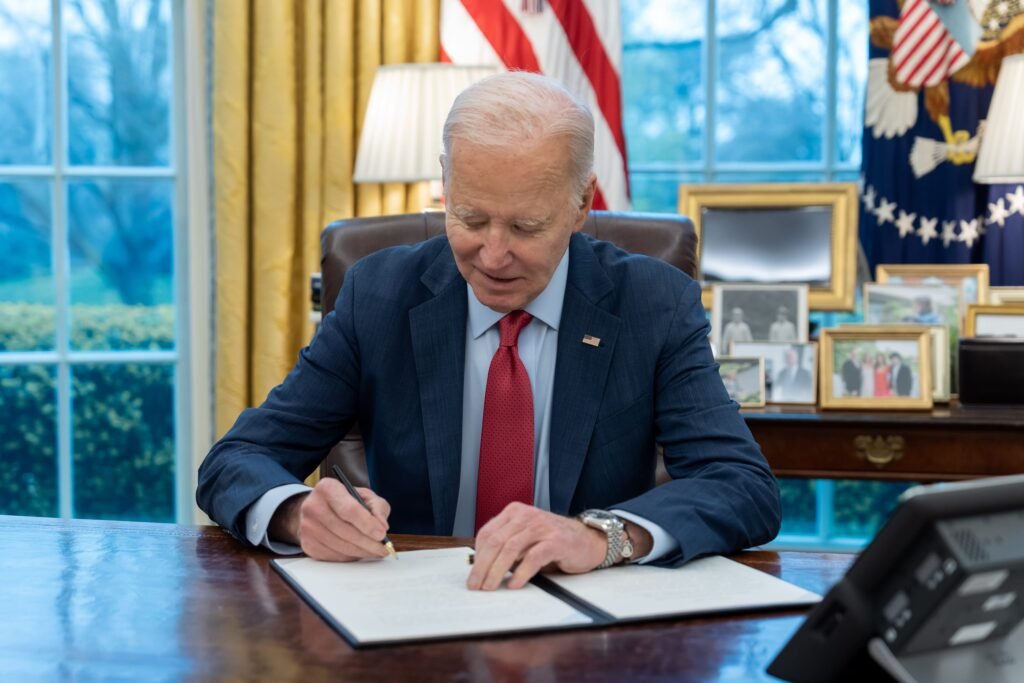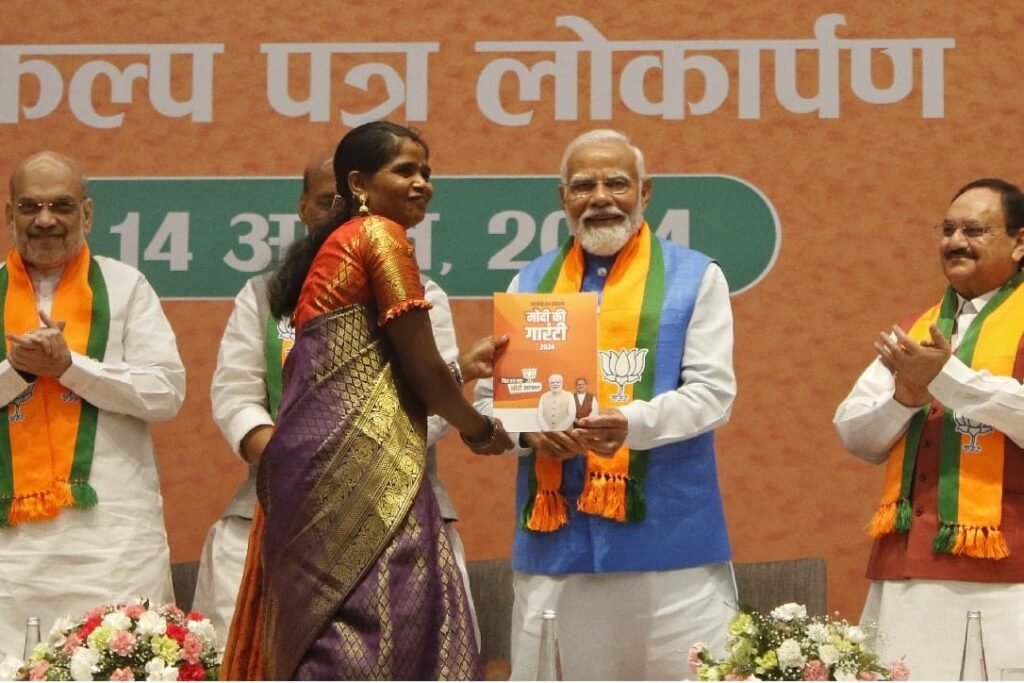Comparative Analysis: Biden’s $1.9 Trillion Covid Relief Bill & India Alliance’s Mahalakshmi Scheme. President Biden signed a $1.9 trillion Covid Relief Bill in 2021 to provide relief to American citizens. India’s Alliance promised Mahalakshmi scheme aims to provide ₹1 lakh per year to eligible beneficiaries. Let’s delve into a comparative analysis of these two initiatives and explore their potential impacts on economic activity, job creation, and consumer markets.
Universal Basic Income (UBI)
The idea of direct cash deposit in citizens’ accounts, known as Universal Basic Income (UBI), entails providing all residents or citizens of a nation with a consistent, unconditional amount of money, irrespective of their employment status or income level.
The idea behind UBI is to ensure that everyone has a basic level of financial security to meet their basic needs and support their well-being. Several countries have experimented with variations of UBI or similar cash transfer programs.
Finland conducted a two-year trial of UBI between 2017 and 2018. It provided a monthly stipend to a group of randomly selected unemployed individuals. Similarly, Canada implemented a basic income pilot project in Ontario, which ran from 2017 to 2018.
Other countries, such as Spain, Kenya, and Brazil, have also explored or implemented UBI-like initiatives on a smaller scale.

Biden’s $1.9 Trillion Covid Relief Bill: A Boost for American Economy
President Biden’s $1.9 trillion Covid Relief Bill, signed into law in 2021, marked a pivotal moment in the US response to the pandemic. This comprehensive relief package included direct payments to eligible individuals, extended unemployment benefits, funds for vaccine distribution, and support for small businesses. The impact of this bill on the American economy has been profound.
Steady Economic Growth & Job Creation
Post-Covid, the American economy has experienced steady growth, creating record jobs and fostering a booming economy. According to data from the US Bureau of Labor Statistics, the US economy added over 6 million jobs in 2021, marking the highest job growth since 1997. This surge in employment has contributed to a decline in the unemployment rate to pre-pandemic levels. It demonstrated the effectiveness of the relief measures in revitalizing the labor market.
Inflation & Consumer Spending
Despite concerns about inflationary pressures, Americans have continued to spend, driving economic activity and fueling the recovery. Data from the US Department of Commerce shows that consumer spending increased by 8.5% in 2021. It is the largest annual increase since 1946. This robust consumer spending has buoyed businesses across sectors, contributing to overall economic expansion.
Continued Economic Growth
Over the last three years, the US has been the only developed economy to experience continuous growth. This sustained economic expansion can be attributed to the effective implementation of relief measures. It provided vital support to individuals and businesses during the pandemic-induced downturn. As a result, the US economy has emerged stronger and more resilient, setting a positive trajectory for future growth.
BJP – The Pioneer women-centric policies
The BJP party has been at the forefront of pioneering women-centric policies, a strategy that played a significant role in their electoral victories in both the 2014 and 2019 elections.

Recognizing the importance of addressing gender disparities and empowering women, the BJP introduced a range of initiatives aimed at promoting their welfare and participation in various spheres of society.
From schemes like Beti Bachao Beti Padhao, aimed at improving the status of the girl child, to the Pradhan Mantri Matru Vandana Yojana, providing financial assistance to pregnant and lactating mothers, the BJP’s focus on women’s issues resonated with voters across the country.
Launched in 2016, the Ujjwala Yojana provides free LPG connections to women from below the poverty line households, thereby replacing traditional cooking fuels like wood and dung with clean and efficient LPG. By prioritizing access to clean cooking fuel, the Ujjwala Yojana not only promotes women’s health and safety but also empowers them economically by freeing up their time spent on fuel collection and reducing their exposure to harmful indoor air pollution.
By prioritizing women-centric policies, the BJP demonstrated a commitment to inclusive governance and garnered support from a significant portion of the electorate, contributing to their electoral success in 2014 and 2019.
Election Manifestos: BJP & Congress Women Centric Policies
While the manifestos of the BJP and INC share similarities, they also exhibit distinct approaches, particularly concerning the financial empowerment of women.
The BJP emphasizes providing loans and training to women through initiatives like the Lakhpati Didi scheme, aiming to enable them to earn a sustainable annual income of at least ₹1 lakh. With a reported success benefiting one crore women and a vision to extend this to three crore, scaling up such efforts appears promising.
Conversely, the INC proposes a different strategy, offering ₹1 lakh per year to every impoverished Indian family as an unconditional cash transfer. While this basic income scheme addresses immediate needs for the poorest segments of society, it may not directly contribute to the financial empowerment of women.
In this article, we aim to assess the India Alliance/ Congress party’s Mahalaxmi scheme, a direct cash deposit initiative targeting one woman from each impoverished family, and its potential impact.
We draw parallels with the outcomes of the Biden administration’s $1.9 trillion Covid Relief Bill in the USA to gauge the feasibility and effectiveness of the Mahalaxmi scheme.

India Alliance Mahalakshmi Scheme: Empowering Citizens with Financial Support
In contrast to the US relief bill, India’s Alliance Mahalakshmi scheme offers a unique approach to economic stimulus. The scheme aims to provide ₹1 lakh per year to eligible beneficiaries, empowering them financially and stimulating economic activity.
Triggering Economic Activity & Job Creation
The Mahalakshmi scheme is expected to trigger economic activity by boosting consumer spending and investment. With increased purchasing power, beneficiaries are likely to spend more on goods and services. This would drive demand and creating opportunities for businesses to expand. This surge in economic activity is anticipated to generate new job opportunities across sectors, contributing to overall employment growth.
Indirect Tax Revenue
The influx of funds into the hands of beneficiaries is also expected to lead to an increase in indirect tax collections. Higher consumer spending translates into greater revenue generation through taxes on goods and services. This would bolster government finances and enabling investment in public infrastructure and services.
Revitalizing Consumer Markets
By providing financial support to eligible individuals, the Mahalakshmi scheme aims to eliminate sluggishness in the Indian consumer market and create a new threshold for consumption. Increased purchasing capacity among beneficiaries is likely to drive sales and boost revenue for businesses, particularly in sectors such as retail, hospitality, and consumer durables.
Conclusion: A Tale of Two Economic Stimulus Initiatives
While the Biden administration’s $1.9 trillion Covid Relief Bill and India’s Alliance Mahalakshmi scheme differ in their approach and scale, both initiatives share a common goal of revitalizing their respective economies and supporting citizens in the aftermath of the Covid-19 pandemic. While the US has experienced steady economic growth and job creation post-relief bill implementation, India’s Mahalakshmi scheme holds the potential to stimulate economic activity, boost job creation, and revitalize consumer markets. As both countries navigate the challenges of recovery and rebuilding, these economic stimulus initiatives serve as critical tools in fostering resilience and prosperity.
About the Author
Dr. Tausif Malik is a social entrepreneur, publisher, and academician, renowned for his innovative ventures. He founded and publishes The Desi Buzz, GCC Startup News, Startup Berita, and Halal Biz News, amplifying entrepreneurship globally. Dr. Malik also spearheads AIMBSN, Halal Angels Network, and Startup Villages, fostering startup ecosystems. His groundbreaking initiative, RiseBack.org, offers affordable edtech solutions, providing Indian university programs starting at $50 per month and professional IT courses priced at $250-$350. Through his diverse endeavors, Dr. Malik empowers individuals with access to education and opportunities.

